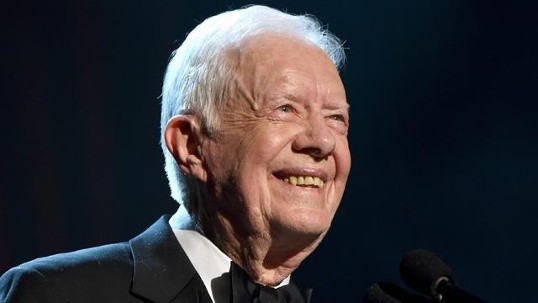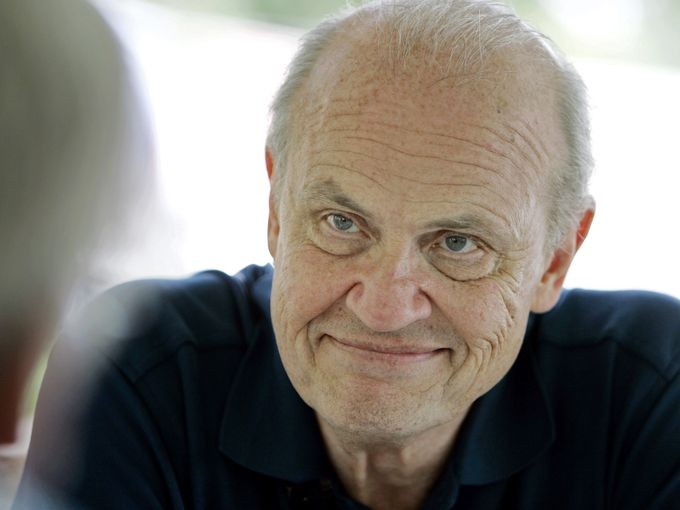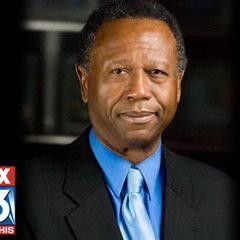A pair of circumstances this week reminded us that — current cynical views of our political system notwithstanding — honorable individuals do seek public office, manage to gain it, and behave honorably while doing so.

Former President Jimmy Carter
One reminder came on Monday, with the visit to Memphis of 91-year-old Jimmy Carter, the 39th president of the United States, who, accompanied by his wife Rosalynn and country singers Garth Brooks and Trisha Yearwood, were here as volunteers with Habitat for Humanity to begin construction on a new home for a North Memphis resident.
It was, said international Habitat CEO Jonathan Reckford, who was on hand for a press conference noting the event, the 33rd such work project performed for Habitat since 1984 by the Carters, who began home-building efforts of their own almost immediately after leaving the White House in 1981.
When completed, the new Memphis house will be part of some 99 projects in Shelby County that will have been brought to completion by Habitat using volunteer efforts for its completed projects, which beneficiaries pay for with low- or no-interest loans.
President Carter noted the democratizing effect of Habitat’s efforts this way: “It breaks down the barrier between the wealthy and the poor. Habitat opens up a way for people to work alongside poor people and get to know them personally. Those people are just as smart as I am, just as hard-working, and have the same values.”
Carter, who sounded and looked strong, minimized the effects of the metastasized melanoma for which he is currently receiving treatment.
Reckford was candid in saying that the selfless efforts of the irrepressible Carters had put Habitat on the map, allowing it to have reached a total of some 360,000 completed projects all over the world. The former president isn’t through with Memphis; he promised to be back for more home-building on Habitat’s behalf next year.

Former Senator Fred Thompson
That’s one kudos we owe. Another goes to not-quite-native son Fred Thompson, a Middle Tennessean who graduated from then Memphis State University in 1964 and then began a rise that saw him become a player of note in both national politics and the entertainment industry.
Thompson’s strong, authoritative persona made him a natural in such movies as Days of Thunder, The Hunt for Red October, and Die Hard 2, and in his running role as District Attorney Arthur Branch in TV’s Law & Order series. These thespian efforts were woven into a life that included service as Republican counsel on the Senate Watergate Committee of 1973, as U.S. Senator from 1994 to 2003, and as a declared candidate for the presidency in the 2008 election cycle.
It was Thompson whose questioning for the Watergate committee elicited the fateful news of President Richard Nixon’s incriminating taping system. As a Senate candidate in 1994, he raised eyebrows in his party, then engaged in a full-fledged fishing expedition against Bill and Hillary Clinton, known as Whitewater, by condemning what he saw as an increasing tendency to gain political ends by criminalizing the opposition.
Like Carter, Thompson maintained a sense of ethics in office, and both deserve our heartfelt appreciation.
